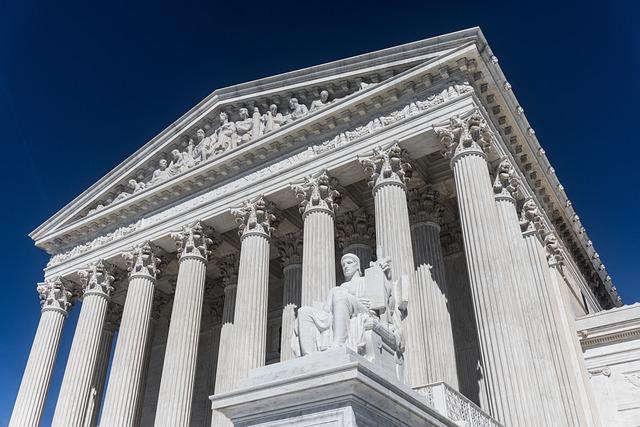In a decisive move to address rising concerns over youth violence, the albanian government has implemented a one-year ban on the popular social media platform TikTok. This unprecedented action reflects a growing recognition of the influence that digital platforms can have on young people’s behavior and interactions. As Albania grapples with incidents of violence linked to online challenges and trends, authorities are prioritizing the safety and well-being of its youth. This article delves into the implications of the TikTok ban, the underlying issues prompting this bold decision, and the broader context of social media regulation in the Balkans, as the nation seeks to foster a more secure habitat for its future generations.
Albanias TikTok Ban: Implications for Youth Engagement and Digital Culture
The decision to impose a one-year ban on TikTok in Albania marks a significant shift in how digital platforms are perceived in relation to youth behavior. This move comes amid growing concerns over incidents of violence among young people, which authorities link to social media engagement.The ban raises questions about youth engagement in the digital age,especially as TikTok has become a popular outlet for self-expression,creativity,and social interaction. Young Albanians, who make up a substantial portion of the platform’s user base, may find other means to connect, which could lead to unintended consequences, such as a resurgence in offline gatherings that some fear could escalate into violence.
While the government’s intent focuses on safety, the long-term implications could shape digital culture considerably. Alternatives to TikTok might proliferate,but they may also lack the same safeguards or community guidelines that larger platforms typically implement. Consequently, potential shifts in content creation might lead to a more fragmented digital landscape. Considerations include:
- Increased Vulnerability: Without established networks,youth may engage with less regulated platforms.
- Cultural Isolation: The absence of a widely accepted platform could diminish shared cultural experiences among peers.
- Innovation Lag: A gap in digital creativity could emerge as young users navigate to less popular applications.

Understanding the Roots of Youth Violence: A Closer look at Social Medias Role
The rapid proliferation of social media platforms has transformed the way young individuals communicate, express themselves, and connect with their peers. While these platforms offer radiant avenues for creativity and social interaction, they are also a breeding ground for harmful behaviors that can escalate into violence. Youth violence is increasingly linked to online dynamics that frequently enough include:
- Cyberbullying: Anonymity and a lack of accountability can lead to vicious online harassment.
- Influence of Violent Content: Exposure to aggressive or violent videos can desensitize youth to real-life consequences.
- Peer Pressure: Social validation through likes and shares can encourage reckless behavior among peers.
Governments and communities are now scrutinizing these underlying factors, prompting significant policy responses. As seen in Albania’s recent TikTok ban, there is a growing recognition that proactive measures must be taken to mitigate these risks. This ban represents a crucial step in addressing systemic concerns about the negative impacts of social media on youth, allowing stakeholders to examine the intricate relationship between virtual behavior and real-world outcomes. As authorities consider the implications of digital interactions, it remains critical to foster a safe online environment that prioritizes mental health and well-being.

Government Response: Analyzing the Justifications Behind the Ban
The Albanian government has taken an unprecedented measure by implementing a one-year ban on TikTok, citing a pressing need to address rising incidents of youth violence attributed to the popular social media platform. Officials emphasize that the decision is rooted in extensive discussions within the Ministerial Council and reflects a broader commitment to safeguard public safety. Key justifications include:
- Protection of Minors: Authorities argue that the platform’s influence, particularly its viral challenges and trends, often lead to risky behavior amongst youths.
- Preservation of Social Cohesion: The government believes that reducing access to the app will help mitigate tensions and aggressive behavior that have recently surged within communities.
- Promoting Positive Online Engagement: There is a desire to redirect the youth towards safer and more constructive platforms that inspire creativity without compromising their well-being.
Further analysis reveals that the decision is not merely reactionary; it embodies an effort to align with broader regional security strategies. Albanian officials reference similar measures taken by other countries grappling with youth-related issues exacerbated by social media. A comparative overview illustrates a trend where governments are increasingly willing to restrict access to platforms deemed harmful. The table below highlights other nations that have enacted strict regulations on social media:
| Country | Platform | Reason for Ban | Duration |
|---|---|---|---|
| Indonesia | TikTok | Inappropriate content | Temporary |
| India | Chinese Apps | Data privacy | Indefinite |
| Afghanistan | TikTok | Morality concerns | Indefinite |

Potential Consequences for Digital Freedom and Expression in Albania
the recent decision to impose a year-long ban on TikTok in albania raises significant concerns regarding the potential implications for digital freedom and expression, particularly among the youth. As social media becomes an integral part of daily interaction and cultural exchange, restricting access to popular platforms can have a disproportionate impact on how young people engage with the world. The following points illustrate the critical aspects affected by this ban:
- Stifling Creativity: tiktok serves as a platform for artistic expression, allowing users to showcase their talents and creativity. By banning it, young creators may lose valuable opportunities to share their work and connect with a broader audience.
- Exacerbating Digital Isolation: With manny social interactions now taking place online, the ban could lead to a sense of isolation among youth, who often rely on these platforms for community and support.
- Impact on Mental Health: Digital platforms often provide a space for young people to engage with their peers, share experiences, and access mental health resources. Limiting these interactions could contribute to negative mental health outcomes.
Moreover, the move comes at a time when digital literacy and cyber ethics are increasingly becoming crucial components of education. The ban may inadvertently signify an overreach by authorities, potentially leading to a slippery slope of increased censorship in other areas of digital life. Stakeholders should consider the following factors in evaluating the consequences:
| Factor | Impact |
|---|---|
| Engagement in Political Discourse | Reduced avenues for youth to participate in discussions impacting their society. |
| Access to Global Trends | limited understanding and integration of global movements and trends. |
| Influence of Choice Platforms | Potential migration to less regulated platforms that may pose greater risks. |

Recommendations for Youth Safety and Responsible Social Media Use
Considering the recent TikTok ban in Albania, it is indeed crucial to engage youth in conversations about their safety and the responsible use of social media platforms.Parents and educators should emphasize open dialogues about the content young users engage with and its possible impact on their well-being. Workshops and community programs can foster an understanding of online dangers and teach resilience against negative influences. Encouraging youths to critically evaluate the media they consume can empower them, enabling healthier interactions with social platforms.
It is equally important to provide practical guidelines that promote safe online behavior. Some effectively actionable tips include:
- Privacy settings: Regularly review and adjust privacy settings on social media accounts to protect personal data.
- Digital footprint: encourage youth to think before they post, as online actions have lasting consequences.
- Report and block: Teach the importance of reporting inappropriate content and blocking harmful users.
- Time management: Establish limits on screen time to encourage balanced lifestyle choices.

Future of Content creation in Albania: Exploring Alternative Platforms and Solutions
The recent decision to impose a one-year ban on TikTok in Albania has sparked significant discussions surrounding the future of digital content creation in the country. As the government seeks to address concerns over youth violence associated with social media usage, creators and influencers are exploring alternative platforms that can provide them with an audience while maintaining a safe environment. It is indeed essential for these creators to consider options that align with their needs, such as:
- Local Video Platforms: Emerging platforms tailored to Albanian culture may foster community engagement and creativity.
- Blogs and Vlogs: Long-form content on personal websites allows for deeper storytelling beyond the confines of short videos.
- Podcasting: An audio format enables creators to discuss topics of interest, tapping into a different audience demographic.
- Collaborative Projects: Joint ventures with local businesses or ngos can provide new avenues for content while addressing social issues.
Adapting to this evolving landscape,Albanian creators may need to reconsider their content strategies,focusing on building communities around shared interests rather than solely on viral trends. As they seek new monetization avenues, they could explore the benefits of diversifying platforms, without forsaking the creative essence that initially drew them to social media. The shift might not only foster safer digital spaces but also challenge content creators to innovate and engage their audience in meaningful ways.

Insights and Conclusions
Albania’s decision to implement a one-year ban on TikTok is a notable intervention aimed at addressing the rising concerns surrounding youth violence and its correlation with social media usage. As authorities seek to protect the wellbeing of their younger population, this move reflects a growing recognition of the potential dangers posed by unregulated digital platforms. The effectiveness of this ban, both in curbing violence and in shaping public discourse on social media, will be closely monitored in the coming months. As other countries observe Albania’s approach,this situation may offer valuable insights into the complex relationship between technology,youth behavior,and societal safety in the digital age. The implications of this bold step extend beyond national borders, inviting broader conversations about the responsibilities of social media companies and the role of government in safeguarding public health.
















